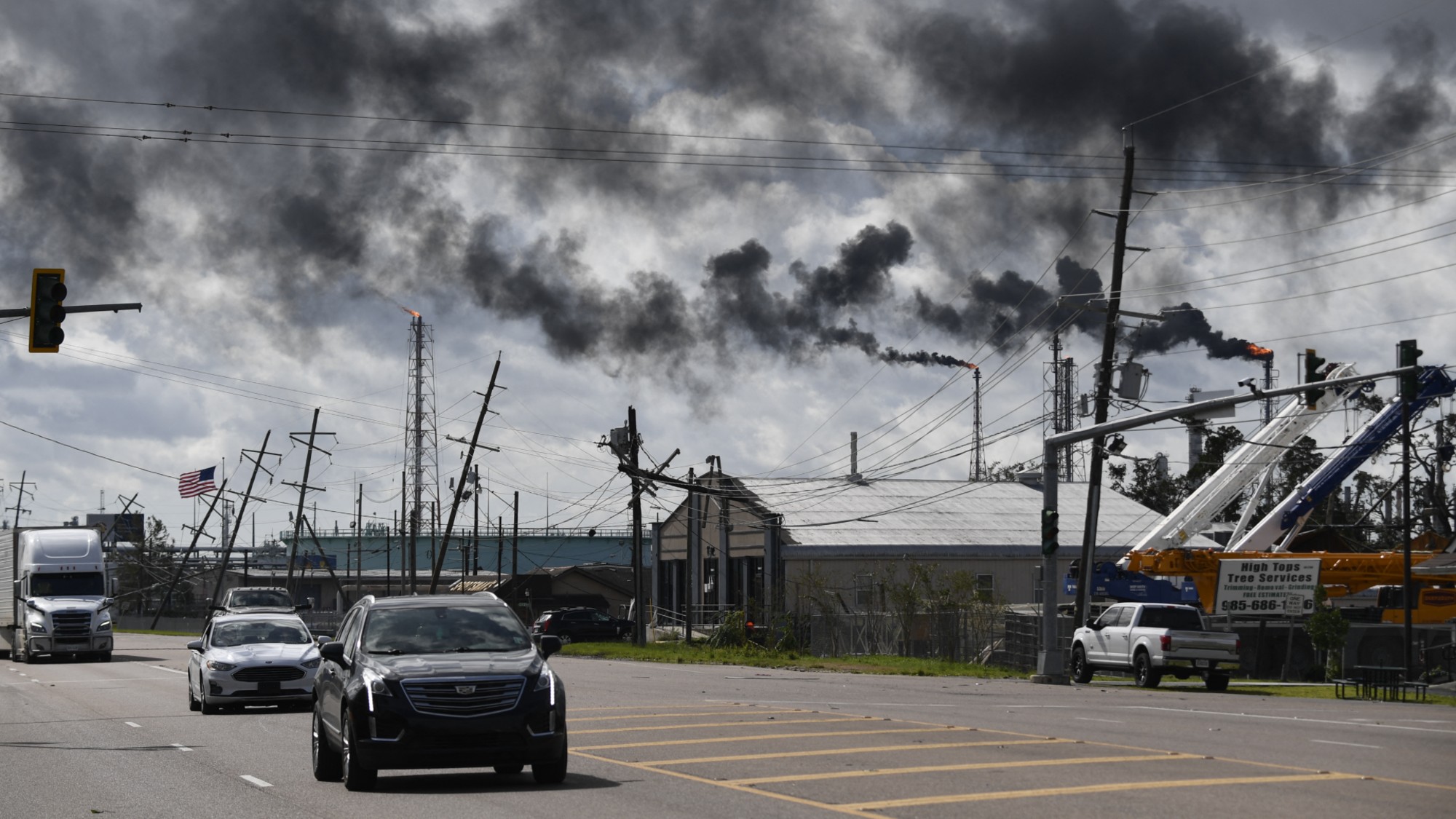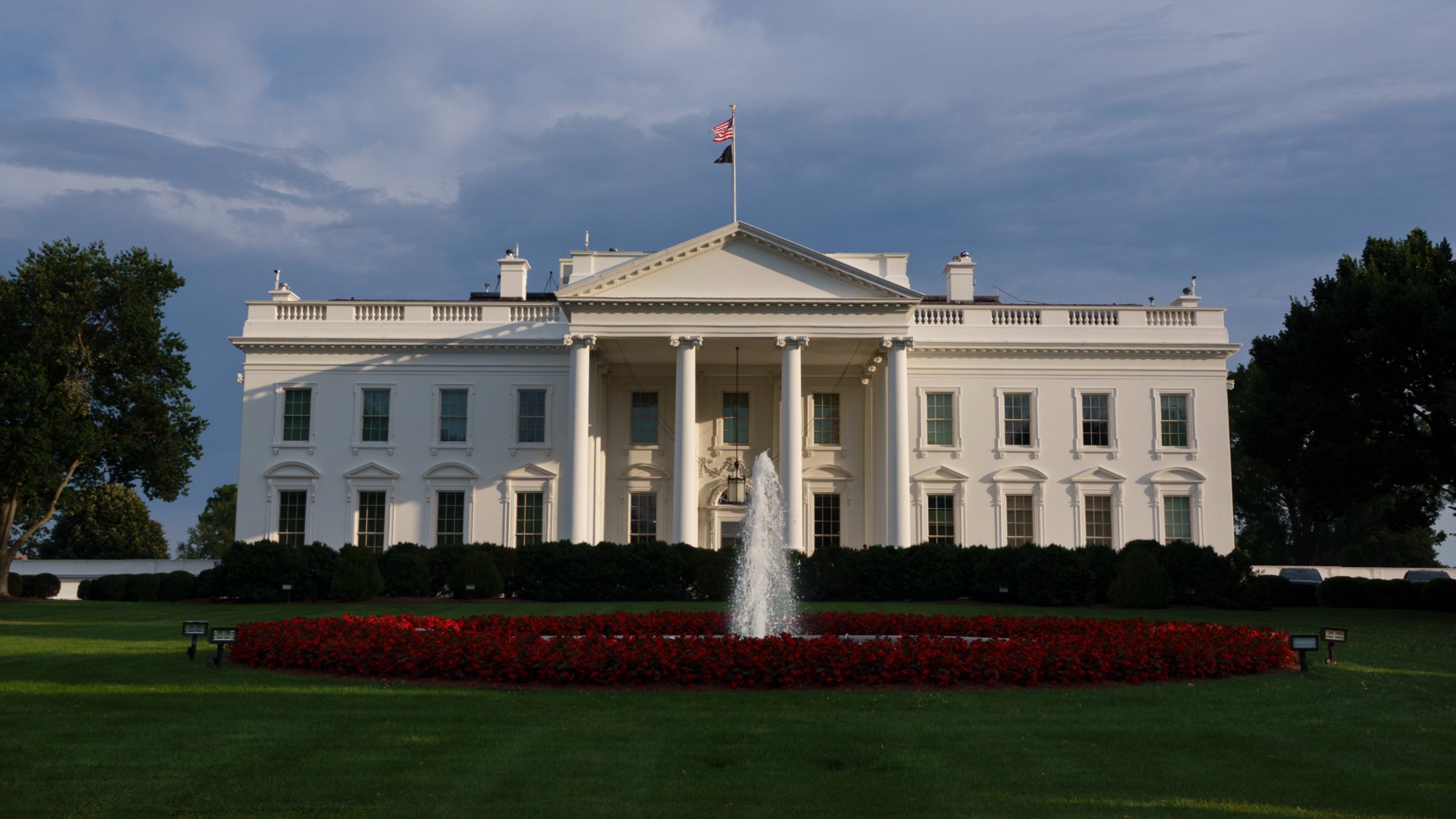The pros and cons of a total smoking ban
Plans to phase out the sale of tobacco completely have won cross-party support

A free daily email with the biggest news stories of the day – and the best features from TheWeek.com
You are now subscribed
Your newsletter sign-up was successful
Rishi Sunak's plans to phase out the sale of cigarettes appears to have gained cross-party backing, making a total smoking ban in the UK a real possibility.
The prime minister used his Conservative Party conference speech to announce plans to raise the age at which people can buy tobacco in England year by year until it applies to the whole population. This would mean a 14-year-old today will never legally be able to buy a cigarette, putting England on a par with the likes of New Zealand, which introduced a similar law last year, in having "some of the strictest smoking laws in the world", Sky News reported.
While an outright ban – even one introduced over several decades – may prove controversial, its chances of coming into law have received a boost after it won support from Labour, as well as Welsh and Scottish governments, where laws on smoking are devolved.
The Week
Escape your echo chamber. Get the facts behind the news, plus analysis from multiple perspectives.

Sign up for The Week's Free Newsletters
From our morning news briefing to a weekly Good News Newsletter, get the best of The Week delivered directly to your inbox.
From our morning news briefing to a weekly Good News Newsletter, get the best of The Week delivered directly to your inbox.
"Political instincts on this issue are coalescing around a similar position," said BBC political editor Chris Mason, meaning the plan could be both "profound and long-lasting".
Pro: saving lives
Almost six million people in England smoke, and tobacco remains the single biggest cause of preventable illness and death. Tobacco smoke can cause cancer, stroke and heart disease, with smoking-related illnesses costing the NHS £17 billion a year, according to campaign group Action on Smoking and Health (ASH).
An independent government-commissioned review, which last year recommended proposals similar to those announced by Sunak, argued that tackling tobacco use and supporting smokers to quit would help prevent 15 types of cancer – including lung cancer, throat cancer and acute myeloid leukaemia. Recent data showed that one in four deaths from all cancers were estimated to be from smoking.
Speaking on BBC Radio 4's "Today" programme, the prime minister said his proposals represented the "biggest public health intervention in a generation", a claim backed up by England's chief medical officer, Sir Chris Whitty, who stressed how beneficial the health improvements would be.
A free daily email with the biggest news stories of the day – and the best features from TheWeek.com
Con: black markets
Simon Clark, of smokers' lobby group Forest, told the BBC that "creeping prohibition won't stop young adults smoking" but it will "simply drive the sale of tobacco underground and consumers will buy cigarettes on the black market where no-one pays tax and products are completely unregulated".
The illicit trade in tobacco products "poses major health, economic and security concerns around the world", according to the World Health Organization, which estimates 1 in every 10 cigarettes and tobacco products consumed globally is illicit.
Writing for The Conversation, Dr Brendan Gogarty, of the University of Tasmania, argued that "laws that rely on prohibition to reduce the prevalence and harm from drugs generally fail to achieve their aims".
Pro: avoiding poverty
Smoking causes a disproportionate burden on the most disadvantaged families and communities, last year's independent review found. The average smoker in the North East of England spends over 10% of their income on tobacco, compared to just over 6% in the South East.
This mirrors research from 2015 conducted by University of Nottingham, which found parents who smoke were "plunging nearly half a million children into poverty", The Independent reported.
As smokers quit, said Sudyumna Dahal for The Conversation, household budgets "become easier, facilitating what a study in the British Medical Journal describes as an income transfer from male smokers to females and other family members".
Therefore, argue anti-smoking campaigners, banning smoking would bring greater benefits to the less well-off.
Con: risk to civil liberties
Smokers and the groups who advocate on their behalf argue that their habit is a civil right, even if it kills the smoker. In a report published in 2019, the smokers’ group Forest argued that "smokers are the canaries for civil liberties".
It added that the call for a ban "directly violates the harm principle that assumes a person has autonomy over their own life and body as long as they do not hurt other people".
As The Spectator editor Fraser Nelson pointed out on Twitter, plans to phase out the sale of cigarettes could lead to the absurd situation where pensioners will have to produce ID to prove which side of the ever-moving line of legality they are on.
"I'd love to live in a smoke-free world," wrote Rachael Bletchly in the Daily Mirror. "I wish people would stop wrecking their health with cigarettes. But I don't think it's the job of politicians to police other grown-ups' filthy habits. And I fear that Rishi Sunak's new smoking ban is just well-meaning, populist puff."
Pro: environmental protection
Cigarette smoking has several negative environmental impacts and banning smoking would bring these to an end. Smokers release pollution into the atmosphere, cigarette butts litter the environment, and the toxic chemicals in the residues cause soil and water pollution.
Tobacco is commonly planted in rainforest areas and has contributed to major deforestation, said Conserve Energy Future.
A 2013 report in the journal Tobacco Control found that cigarette manufacturing “consumes scarce resources in growing, curing, rolling, flavouring, packaging, transport, advertising and legal defence” and “also causes harms from massive pesticide use”.
Con: losing tax revenue
Taxation on smoking raises more than £8.8 billion per year for the Treasury, noted Politics.co.uk. The TaxPayers’ Alliance rejected the argument that smokers also cost the taxman more due to their health burden, arguing that smokers who suffer major health problems are more likely to die prematurely, reducing expenditure on state pensions and other age-related benefits.
-
 Political cartoons for February 16
Political cartoons for February 16Cartoons Monday’s political cartoons include President's Day, a valentine from the Epstein files, and more
-
 Regent Hong Kong: a tranquil haven with a prime waterfront spot
Regent Hong Kong: a tranquil haven with a prime waterfront spotThe Week Recommends The trendy hotel recently underwent an extensive two-year revamp
-
 The problem with diagnosing profound autism
The problem with diagnosing profound autismThe Explainer Experts are reconsidering the idea of autism as a spectrum, which could impact diagnoses and policy making for the condition
-
 ‘Those rights don’t exist to protect criminals’
‘Those rights don’t exist to protect criminals’Instant Opinion Opinion, comment and editorials of the day
-
 How corrupt is the UK?
How corrupt is the UK?The Explainer Decline in standards ‘risks becoming a defining feature of our political culture’ as Britain falls to lowest ever score on global index
-
 The high street: Britain’s next political battleground?
The high street: Britain’s next political battleground?In the Spotlight Mass closure of shops and influx of organised crime are fuelling voter anger, and offer an opening for Reform UK
-
 DOJ targets ‘disparate impact’ avenues of discrimination protection
DOJ targets ‘disparate impact’ avenues of discrimination protectionIN THE SPOTLIGHT By focusing solely on ‘intentional discrimination,’ the Justice Department risks allowing more subtle forms of bias to proliferate
-
 ‘Toxic chemicals emitted by those facilities can ravage the human body’
‘Toxic chemicals emitted by those facilities can ravage the human body’Instant Opinion Opinion, comment and editorials of the day
-
 Is a Reform-Tory pact becoming more likely?
Is a Reform-Tory pact becoming more likely?Today’s Big Question Nigel Farage’s party is ahead in the polls but still falls well short of a Commons majority, while Conservatives are still losing MPs to Reform
-
 Taking the low road: why the SNP is still standing strong
Taking the low road: why the SNP is still standing strongTalking Point Party is on track for a fifth consecutive victory in May’s Holyrood election, despite controversies and plummeting support
-
 Congress should 'step in' to block Trump's White House ballroom makeover
Congress should 'step in' to block Trump's White House ballroom makeoverInstant Opinion Opinion, comment and editorials of the day